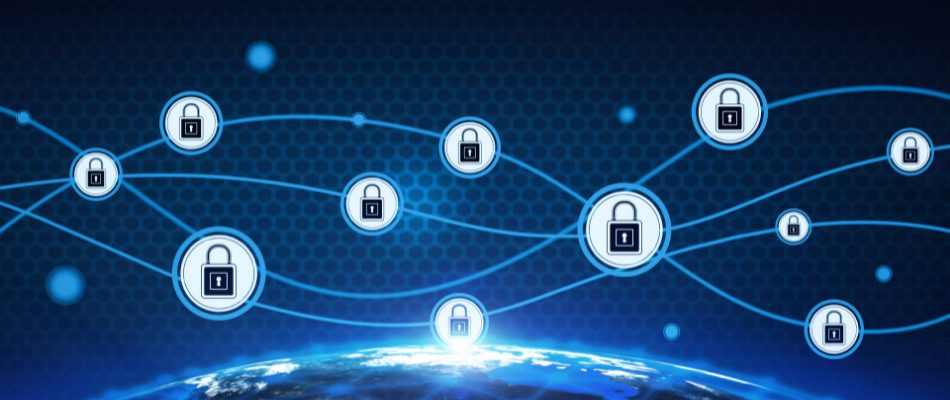Our lives are intricately connected to technology with so much of our data living on devices and internet platforms, vulnerable to ransomware attacks at any point. We share so much and trust too much in the cybersphere, but at what cost?
Click around inattentively and you might land yourself in a situation where cybercriminals have you hooked in their net – demanding ransomware. You have to be cybersmart in today’s digital environment for your own good. Without good cybersecurity measures in place, your personal data can’t be adequately protected from cyberattacks such as ransomware.
Ransomware is just one example of the cyberattacks prevalent today. It’s a huge and profitable cyberextortion tactic that leverages the withholding of access to sensitive data as a means to secure payment as ransom to gain the data back. A single ransom price following a ransomware attack has cost as much as $70 million, the largest demand ever, according to Backblaze’s Complete Guide to Ransomware.
 What is ransomware and why is it a big deal?
What is ransomware and why is it a big deal?
Computer security software company McAfee defines ransomware as “malware that employs encryption to hold a victim’s information at ransom. A user or organisation’s critical data is encrypted so that they cannot access files, databases, or applications. A ransom is then demanded to provide access.”
Ransomware attacks are expected to cost organisations $20 billion in 2021, globally. Bringing it closer to home, in South Africa, ransomware is on the rise. Cybersecurity and anti-virus provider Kaspersky saw a 24% increase in ransomware in Q2 of 2021. On a more personal level, cyberattacks, in general, are prevalent in SA where the most online shoppers are based, compared to the rest of Africa, and about 19,842 cyberattacks are reported in a day, according to CGTN.
How does ransomware work and what are the implications?
Cybercriminals attack you by tricking you into installing malicious software on your device resulting in the encryption of the files on your device and them holding the files hostage, pending the fulfillment of a monetary agreement which they would then stipulate. At this time, you will have zero access to your files. You have to pay up to regain access, and because Bitcoin is extremely hard to trace, cybercriminals often require you to pay through it, which is another stress on its own.
Unfortunately, complying with the demands of a cybercriminal during a ransomware attack is not a guarantee that your data will be made accessible to you again. Usually, they make contact with you requesting that you pay a certain amount of money first. This amount can vary, and it can be exorbitant. It’s also imperative that you pay the ransom amount within a limited time frame – or risk losing your information. A ransomware attack can strike at any time.
The impact of ransomware attack
The frustration resulting from such attacks can be twofold for a victim: the unplanned financial strain you will have to sacrifice for, and the immense distress due to the personal value of data which may be potentially lost. Mind you, data can be extremely sensitive, so there’s an emotional vulnerability that comes along with such attacks where one feels helpless with their privacy breached by someone they don’t even know.
You’ll have done nothing wrong but can fall victim to the ploy of an online criminal activity probably because you were among the most vulnerable targets by not being well-informed about cybersecurity and things to avoid doing when surfing the internet. You do need to know things like how to protect your PC from ransomware, for example. Now you can’t even access your information as the rightful owner.
The effects of this can be damaging to your livelihood, ultimately. You stand a chance to lose personal information, intellectual property, financial data, or other types of sensitive data. At this point, you’re completely at the mercy of the cybercriminal. And when all is said and done, you may not even be able to decrypt your files and have access restored to you, as expected. It’s a tough risk to bear.
Who are the main victims of cybercrime?
Many organisations have been victims of ransomware attacks globally. The truth is anyone is at risk, not just companies; and you’re not the exception. This type of malware cybercrime affects individuals on a personal level too, and many have unfortunately fallen victim due to a lack of knowledge of these complexities.
Even business and government institutions can be a victim. Ironically, the South African Department of Justice was a victim of this cybercrime whereby its ICT systems were compromised following a ransomware attack in September 2021. It was reported that at least 1,200 files may have been compromised in the ransomware attack. The files included information such as names, banking details, and contact details of individuals.
To curb this type of cybercrime, the Cybercrimes Act 19 of 2020 holds that any person who unlawfully and intentionally commits or threatens to commit any offence (such as the unlawful interference with data or computer program, for the purpose of obtaining any advantage from another person; or compelling another person to perform or to abstain from performing any act, is guilty of the offence of cyberextortion.
Knowledge is key to curb cybercrimes
Extortionists look to attack at any place where there is potential for vulnerability. It boils down to education about the nature of cybercrime and knowledge of cybersecurity. We all need it when it comes to navigating this complex world of cybercrime activities.
Many higher education providers now offer courses on cybersecurity that can help you to build good knowledge and skills when it comes to cybersecurity. Digital Regenesys, an online learning platform, offers a comprehensive self-paced and live learning cybercrime course that can teach you about network threats, vulnerabilities, data security, risk management, the development of a cybersecurity plan, and more.
This knowledge is essential as we’re living in a crime-infested cybersphere in the digital age where the world of crime has evolved from physical crimes to digitally committed crimes. If you think about it, in this day and age, you’re not safe online, neither are you on the streets.
But you can take online safety precautions to ensure any criminal attack digitally, or attempt thereof, is not successful or has little to no impact on your life because you knew what to do and what not to do.
You’ve got to be streetwise in the cyber streets as cybercriminals are lurking about waiting to pounce at any given opportunity of weakness. Brush up your knowledge of cybersecurity to ensure you’re cybercrime-proof.
Read also:
- 14 Technologies that are Changing How We Manage Our Health
- How to Protect Yourself Against Cybercrime
[/vc_column_text][/vc_column][/vc_row]


 W
W



